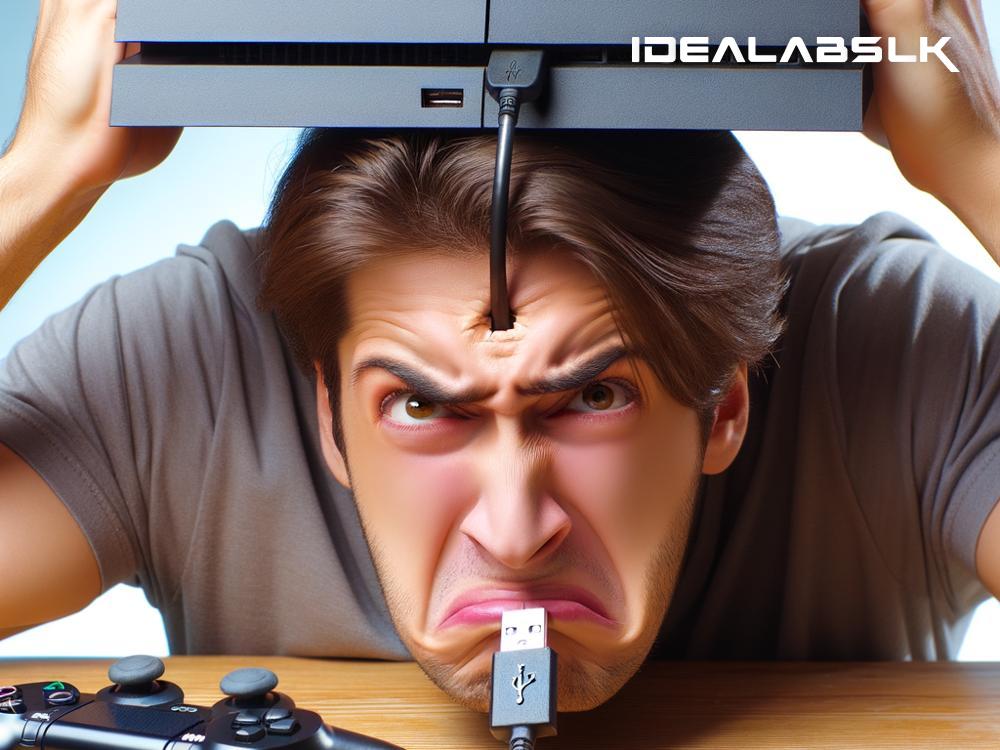Dealing with USB Ports That Won't Work on Your Console
Have you ever found yourself excited to dive into your console gaming session, controller in hand and snacks at the ready, only to be greeted by a USB port that refuses to cooperate? It can be a frustrating experience, particularly when it halts your gaming plans. But don't worry—USB port issues on consoles are more common than you might think, and thankfully, there are several troubleshooting steps you can take. Let's dive into some possible solutions to get you back to gaming in no time.
1. Start with the Basics: Reboot
Sometimes, the solution could be as simple as turning your console off and then back on. Temporary glitches can cause the USB ports to become unresponsive, and a quick reboot often solves the problem. Make sure to completely power off your console, unplug it, wait a minute or two, and then plug it back in and turn it on. This basic step can sometimes work wonders.
2. Check the USB Cable and Port
Before diving into more complex troubleshooting, examine the physical condition of your USB devices and ports. Try using a different USB cable or plug the device into another port on the console. Sometimes the problem is a damaged cable or a specific port that’s acting up. You might also want to gently clean the port using compressed air to remove any dust or debris that might be causing a poor connection.
3. Update Your Console
Outdated system software can occasionally lead to compatibility issues with USB devices. Ensure your console is updated to the latest firmware. Accessing your console's settings menu will typically present you with an option to check for system updates. Downloading and installing any available updates might just solve your USB woes.
4. Reset Your Controller (if applicable)
If the issue is with connecting a controller via USB, try resetting the controller itself. Many consoles have a small pinhole on their controllers that, when pressed with a pin for a few seconds, resets the controller. This step can sometimes clear up connectivity issues caused by the controller’s internal software.
5. Power Cycle the CONSOLE
A slightly more advanced reboot technique is power cycling, which fully drains any residual power from the console. To do this, completely shut down the console, unplug it, and then press and hold the power button for a few seconds while it's unplugged. This can help clear any temporary glitches much more effectively than a regular reboot.
6. Check for Overloading Issues
If you're trying to connect multiple USB devices at once, consider the possibility that you might be overloading the USB ports. Try using just one device at a time to see if the problem persists. In some cases, consoles might not supply enough power to support all connected devices, especially if those devices require a lot of power.
7. Restore Factory Settings
This step should be your last resort due to its potential to erase data. If all else fails, restoring your console to its original factory settings can solve persistent issues, including USB port problems. Make sure to back up any important data before proceeding with a factory reset, as this process will wipe your console clean of any saves, profiles, and downloads.
Conclusion:
Dealing with unresponsive USB ports on your console can be a nuisance, but it's often a solvable problem. By starting with simple solutions like rebooting your console and checking cables, and progressing to more comprehensive fixes like updating software and possibly performing a factory reset, you can tackle most issues head-on. Remember, the key is to approach the problem methodically, checking off possible causes one by one. With a bit of patience and troubleshooting, you'll likely find yourself back in the game before you know it. So, take a deep breath, follow these steps, and get ready to reclaim your gaming experience!

